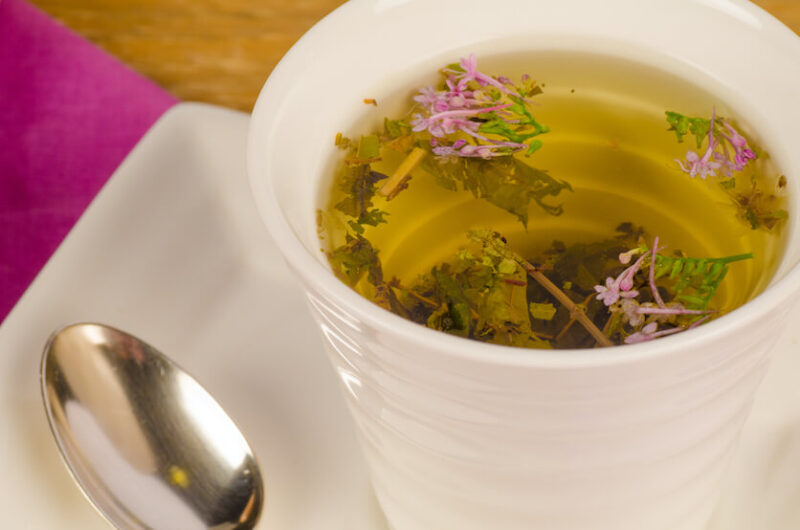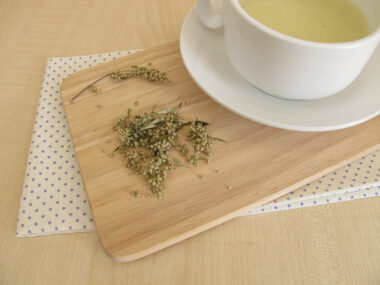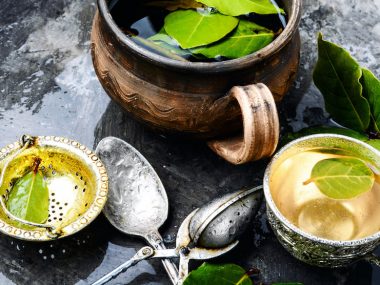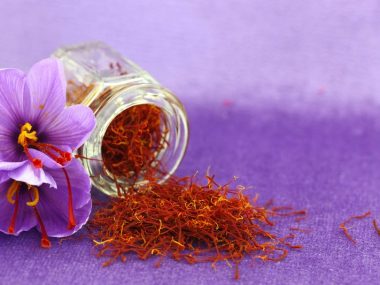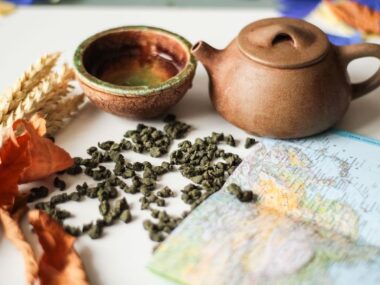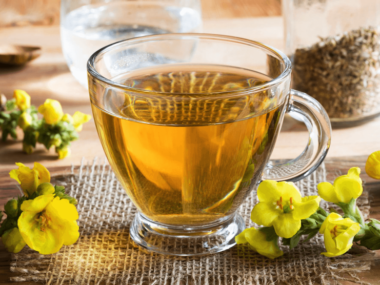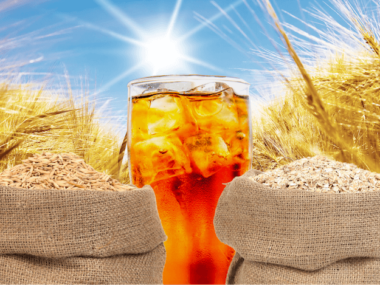A scrubby little shrub growing in desert regions may have an unassuming presence, but a tea made from this plant opens Pandora’s box. A closely related species fuels meth labs worldwide. You don’t want to miss this read on Mormon tea!
Table of Contents
What Is Mormon Tea?
Mormon tea (the beverage), also known as “Brigham Tea”, is made from various species of the genus Ephedra. This tea is a tisane (herbal) and not a true tea such as black or green tea. There are claims that this plant was given its name because of early Mormon settlers who made tea from the plant.
The Mormon Faith and Mormon Tea
Because this tea is assumed to be rooted (or associated) in the Mormon faith, we want to quickly touch upon why claims of Mormon settlers chose to drink this instead of traditional tea.
Some Latter-day Saints (Mormons) will dispute the consumption of Mormon tea because of its side effects. In the Church of Jesus Christ of Latter-Day Saints’ “Word Of Wisdom” doctrine and covenants, Mormons are instructed not to consume tea.
However, Dr. Clifford J. Stratton, Associate Professor of Anatomy, University of Nevada, claims in the church’s “Ensign” magazine (August 1979) that Mormon tea is considered safe and acceptable to drink. Whether the Mormon settlers did or did not begin drinking Mormon tea requires more substantial research.
The Mormon Tea Plant
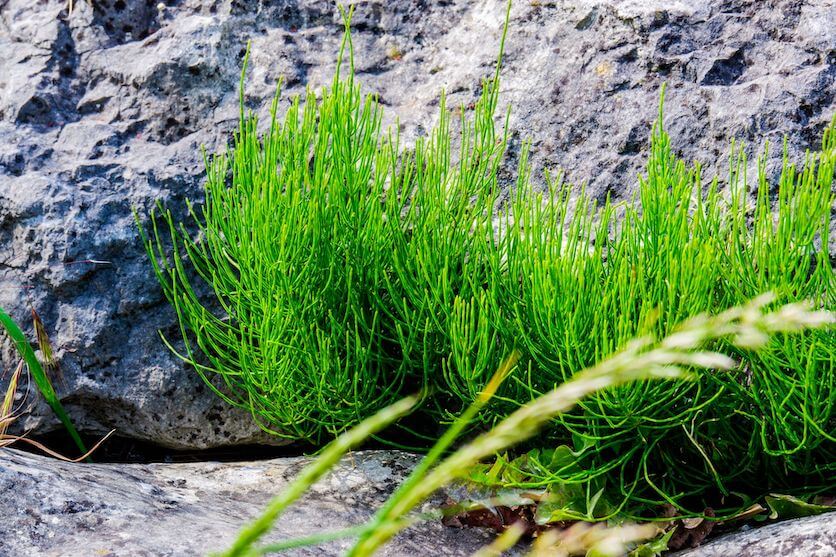
The Mormon Tea plant is one of the numerous species of plants belonging to the Ephedra genus. Species used specifically for Mormon tea include the hybrid Ephedra x arenicola, Ephedra aspera, Ephedra californica, Ephedra coryi, Ephedra funerea, Ephedra nevadensis, Ephedra torreyana, Ephedra trifurca, and Ephedra viridis.
Ephedra plants are considered one of many ancient plants that date as far back as three hundred million years. These plants are distributed throughout the world in arid regions, and most of us are unaware of the plants, much less a tea derived from them.
Past indigenous tribes in the U.S. and other countries used Ephedra to treat ailments. A publication from the University of Arkansas’s Division of Agriculture states Mormon settlers who came to the U.S. made tea from the Ephedra viridis by boiling dried leaves and seeds from the plant. The tea was used by some to treat colds, headaches, fevers, disorders of the bowels, and sexually transmittable diseases. It was the belief that the plant’s tannins acted as a decongestant.
The Hidden Dangers Of Ephedra
Ephedra plants are targeted by pharmaceuticals, herbalists, eastern and traditional medicine, and the illicit drug market because of ephedrine and pseudoephedrine, which is present in some of the Ephedra species.
Many of us associate “Ephedra” with cold medicines such as Sudafed. However, the plant’s chemical constituents became an ingredient in a dangerous drug known as “Fen-Phen” back in the 1990s. Fen-Phen (also known as Redux and Pondimin) was a prescribed drug to help aid in weight loss. Fen-Phen was reported by the Texas Heart Institute Journal to have caused heart valve disorders in some of the patients taking the drug.
Furthermore, clandestine drug labs began to manufacture methamphetamine (meth) from drugs containing ephedrine or pseudoephedrine (such as Sudafed.) Because of the FDA’s ban, the only way to obtain drugs containing ephedrine or pseudoephedrine is through a prescription or restricted purchase at a pharmacy counter.
The U.S. Food and Drug Administration (FDA) banned all future over-the-counter sales of products containing Ephedra due to harmful effects. The “Combat Methamphetamine Epidemic Act of 2005” was put into force in the U.S.
Because of the restrictions and bans in place (in several countries) on Ephedra products, those seeking weight loss aids or stimulants became keenly aware of an Asian herb marketed as Ma-Huang. Ma-Huang is made from one of the Ephedra plant species known as Ephedra sinica. This plant has amphetamine-like side effects that cause one to have a burst of energy because of the Ephedra present in the tissues of the plant.
The American Journal of Botany, Physiology, and Biochemistry claims eastern medicine has used Ma-Huang for over 5,000 years to treat things like asthma, nasal congestion, fever, and cough because of its sedating effect on the respiratory system.
Their article goes on to note that Ephedra species in North and South America lack ephedrine. However, a North American species such as Ephedra viridis may not contain ephedrine, but it does contain pseudoephedrine.
The European Commission’s Federal Institute for Risk Assessment published “Scientific Assessment of Ephedra Species (Ephedra spp.” which noted Ephedra viridis contains pseudoephedrine. The report states that pseudoephedrine functions within the body similarly to ephedrine producing a weaker effect on the central nervous system. The National Library of Medicine, National Center for Biotechnology Information confirms pseudoephedrine “exerts a weaker effect on the sympathetic nervous system.”
The Bosnian Journal of Basic Medical Sciences released the results of a study (“Chemical Composition Of Various Ephedra Species”) warning of the health risk of consuming/ingesting products with Ephedra or supplementation of E-type alkaloids.
Given the numerous findings of scientific data, the question of whether or not a tea made from a Mormon tea plant is safe to consume hangs in the air. Choosing to drink such a tea becomes a personal choice, one of which we do not have the expertise to recommend or advise against.

What Does Mormon Tea Taste Like?
Oddly, tea made from the Mormon Tea plant has a less than desirable taste which makes one wonder why someone would consume it. An overall consensus confirms the tea has a bitter and astringent flavor. References to it tasting like “old boiled socks” or “bitter-piney” also describe its flavor. Perhaps the arid and hostile environments the Mormon Tea plant thrives in are reflected in the tea’s flavor.
Does Mormon Tea Have Caffeine?
Because Mormon tea is herbal (tisane) it does not contain caffeine. True teas such as black and green are caffeinated because they come from Camellia sinensis. If by chance, Mormon tea is blended in with either green or black tea, there will, of course, be caffeine present. An average six-ounce cup of green or black tea can contain up to 50 mg of caffeine.
Look at this beautiful vintage drawers for your tea bags:
Does Mormon Tea Make You Sleepy?
In short, the answer is no. A tea made from the Mormon Tea plant acts as a stimulant. Species of Ephedra used to make Mormon tea such contain pseudoephedrine (according to the numerous studies we mentioned earlier.) Pseudoephedrine stimulates the central nervous system rather than depressing it. Because of this, if you do drink Mormon tea, it’s best not to consume it after 3:00 pm. Otherwise, you may find yourself having trouble getting to sleep.
Is It Okay To Drink Mormon Tea Every Day?
We cannot recommend or dispute the consumption of Mormon tea. What we can do is present to you relative scientific data on the safety of Ephedra plant species mentioned in studies. As we mentioned, certain species of Ephedra are used to make Mormon tea. Pseudoephedrine is present in those species, and when consumed throughout the day, the stimulating effects on the central nervous system can result in unpleasant side effects.
What Are The Effects Of Ephedra?
Ephedra plant species can cause dangerous side effects, especially if a tea is made from Ephedra sinica. Mormon tea is not typically made from this species.
Mormon tea is generally made from Ephedra x arenicola, Ephedra aspera, Ephedra californica, Ephedra coryi, Ephedra funerea, Ephedra nevadensis, Ephedra torreyana, Ephedra trifurca, or Ephedra viridis.
The Ephedra viridis species, for example, contains pseudoephedrine which can cause a host of side effects. The European Commission’s Federal Institute for Risk Assessment research noted in their reports (“Scientific Assessment of Ephedra Species”) numerous side effects and interactions of pseudoephedrine.
- Insomnia
- Headache
- Nausea
- Vomiting
- Rapid heartbeat
- Anxiety
- High blood pressure
Considerable amounts of pseudoephedrine can cause:
- Cardiac arrhythmia
- Addiction
- Spike in blood pressure
Interactions include:
- Cardiac glycosides
- Halothane
- Guanethidine
- MAO inhibitors
- Oxytocin
Weaker symptoms similar to ephedrine intoxication include:
- Agitation
- Altered mental status
- Hand tremors
- Urge to urinate
- Tachycardia
- Dizziness
- Sweating
- Excessive thirst
- Cramping
- Circulatory collapse
- Respiratory paralysis
- Hallucinations
- Hyperthermia
- Cardiac arrest
Mormon Tea Benefits
So, what does Mormon tea do for us in the way of benefits since the associated dangers may pose a problem? We do not have the professional expertise to include any benefits that do not fall within the findings of the researchers we have mentioned above.
Provides An Alternative To Caffeinated Tea
Whether you are of the Mormon faith or one that cannot tolerate caffeinated tea, Mormon tea provides the option of an herbal alternative. But again, be careful to do your homework and read up on the reported side effects. Other herbal teas offer safer alternatives to Mormon tea, such as chamomile, ginger, or peppermint. Also, decaffeinated tea is yet another option.
Claims That It Boosts Your Energy
Pseudoephedrine (which is present in the Ephedra species generally used to make Mormon tea) acts as a stimulant on the central nervous system. Although the tea may act as a stimulant, we cannot recommend its use. Be mindful if considering this tea to provide you that boost of energy, especially if you have conditions or disorders of the heart, high blood pressure, general anxiety disorder, or are certain medications. Consult with your healthcare provider before consuming Mormon tea.
Traditionally Used To Treat Nasal Congestion
Just as Sudafed, Mormon tea acts as a drying agent for a congested nose because of the pseudoephedrine and tannins present in the various Ephedra plant species (we mentioned for making Mormon tea.) But again, we cannot recommend drinking Mormon tea before you first consult with your healthcare provider.
Why Is Mormon Tea Bad For You?
The numerous scientific findings on how pseudoephedrine (present in the Ephedra species used to make teas) affects our bodies pose potential harmful side effects (short-term and long-term) that require great caution.
Although pseudoephedrine has similar (weaker) effects as ephedrine (which is present in other Ephedra species such as Ephedra sinica), one tea drinker can experience more pronounced side effects compared to someone else. Additionally, there’s no concrete evidence on just how much Mormon tea is safe or unsafe to consume.
We’ve presented enough information to help you to make an informed decision on whether you choose to drink Mormon tea or not.
How To Make Mormon Tea
Because Mormon tea poses potential harmful side effects, any consumption of this tea should be in extreme moderation. Below is a recipe for Mormon tea. Please note, we do not recommend or advise against the consumption of this tea.
Mormon Tea Recipe
Ingredients
- 2 cups of water
- 1 teaspoon of Mormon Tea (dried leaves from one of the Ephedra species* used for Mormon tea)
*Ephedra x arenicola, Ephedra aspera, Ephedra californica, Ephedra coryi, Ephedra funerea, Ephedra nevadensis, Ephedra torreyana, Ephedra trifurca, or Ephedra viridis.
Directions
- Bring the water to a boil.
- Remove from the heat.
- Add the Mormon Tea plant dried leaves.
- Allow to steep for 10 minutes.
- Strain and discard the tea leaves.
- Pour the tea into a teacup.
To Drink Or Not? You Decide…
We suggest that deciding to drink or not drink Mormon tea be based on reading studies with scientific data rather than relying on the conflicting information various websites provide. Please don’t take things for face value, especially when it comes to Mormon tea.
